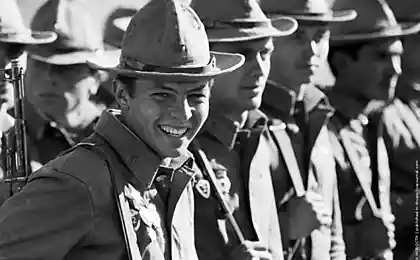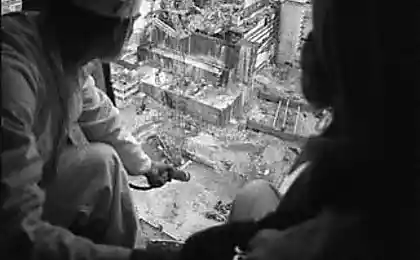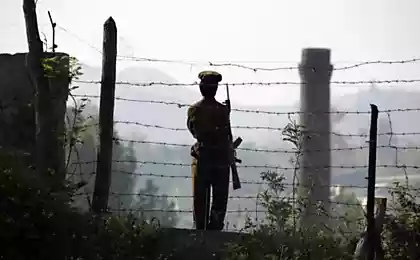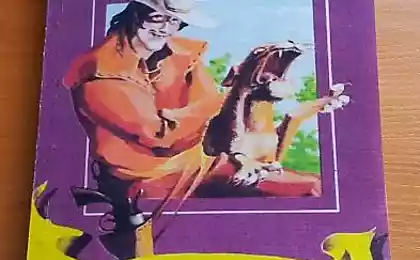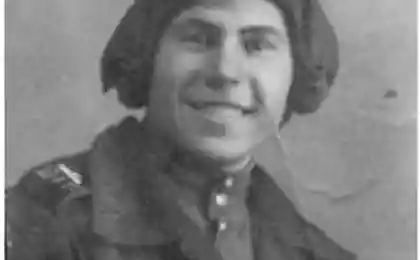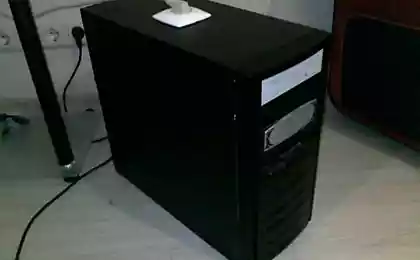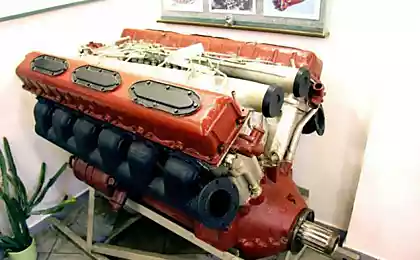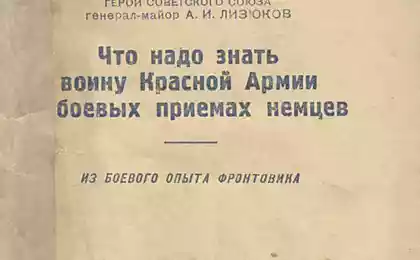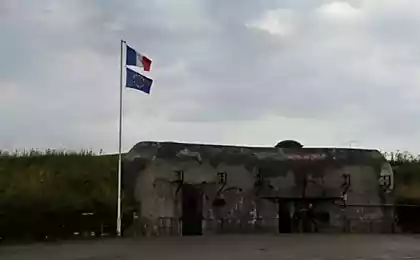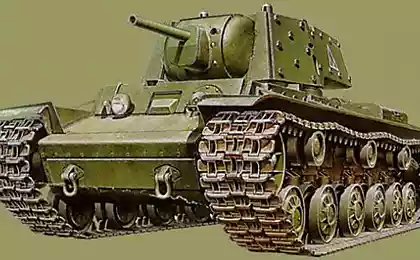685
The last battle of prisoners of the 20th block.
In the night of 2 to 3 February, 1945 raised the Mauthausen concentration camp prisoners with bunks machine-gun fire. Donoso outside shouting "Hurrah!" Left no doubt: in the camp is a real fight. This 500 Soviet prisoners of Block №20 (death row) attacked the machine-gun towers.
Source
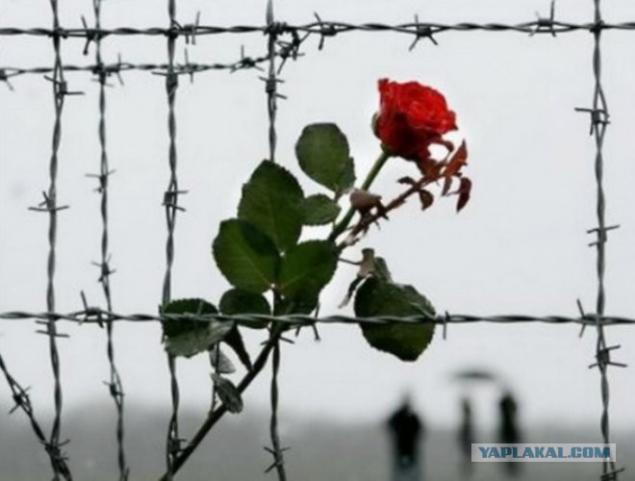
Concentration third category
In August 1938 one of the most picturesque areas of Austria, near the town of Mauthausen, the party arrived prisoners from Dachau. On the ground began construction of the Austrian concentration camp, the first of the future 49, located in the Ostmark (Austria). With cynicism Nazis called their "labor camps." Mauthausen would be the worst of them.
Heydrich's decree all the concentration camps were divided into three categories according to the nature contained in them "contingent". In the first category camp directed arrested, "the correction of which is possible," in the camp of the second category - "correction which is unlikely," well, "incorrigible" subject to imprisonment in the camp of the third category. The camp is the third category was the only one - Mauthausen. Mauthausen was just terrible extermination camps (Treblinka, Sobibor, Auschwitz, Majdanek, Belzec, Chelmno).
Block №20
In the summer of 1944 in Mauthausen appeared to contain the block №20 1800 prisoners. It was a camp in the camp, separated from the total area of the fence height of 2, 5 meters, on top of which was a wire, which is under shock. On the perimeter there were three towers with machine guns.
Very soon, the 20-th block received notoriety "death block." Regularly to submit new batch of prisoners, and from there exported only corpses to the crematorium. Prisoners 20th block received 1/4 obschelagernogo diet. Spoons, plates they were not supposed to. The unit never heated. The window openings were no frames or glass. The unit was not even folk. In the winter, before the prisoners in the drive unit, the SS poured from a hose floor unit with water. People went into the water and just do not wake up.
"Suicide bombers" were terrible "privilege" - they are not driven to work. Instead, they all day doing "exercise" - non-stop running around the block, or crawling. On prisoners of the 20th block of the SS murder of human skills practiced with bare hands and improvised means. There was even a kind of "normal death" - at least 10 people a day. "Distribution list" constantly overfulfilled by 2-3 times. During the existence of the unit it was destroyed 3, 5-4 thousand. People (some sources there are about 6 thousand details.) By the end of January, block №20 remained alive about 570 people.
Prisoners block №20
With the exception of 5-6 and a few Poles, Yugoslavs (the Warsaw uprising) all prisoners "death block" were Soviet prisoners of war, officers sent here from other camps. Open defiance of the camp administration, numerous attempts to escape the Bolshevik propaganda among the prisoners ... In the 20 th block of Mauthausen prisoners were sent, even in the concentration camps poses a threat of III Reich because of their military training, strong-willed qualities and organizational abilities. All of them were taken prisoner or wounded in an unconscious state, and during his captivity were considered "incorrigible».
The documents accompanying each of them was the letter "K" means that the prisoner shall be liquidated as soon as possible. Therefore, arrived in the 20th block is not even branded as the life of a prisoner in the 20th block does not exceed a few weeks. In January 1945, the prisoners of the 20th block, knowing that the Red Army had entered the territory of Poland and Hungary, while the British and Americans crossed the German border, began to prepare an escape.
Reference data on some of the prisoners of Block 20
Colonel Nikolai Vlasov - the hero of the Soviet Union (1942), the pilot. Shot down and taken prisoner in 1943. The three escape attempts.
Lieutenant Victor Ukrainians - artillery, anti-tank riflemen. Convicted of acts of sabotage. Several attempts to escape.
Captain Ivan Bityukov - pilot of attack aircraft. In aerial combat, shooting all the ammunition, he made a battering ram. He was wounded and captured. Four attempts to escape.
Lieutenant Colonel Alexander Isupov - pilot of attack aircraft, the commander of the Air Division. Shot down, wounded and taken prisoner in 1944. In the camp where he was held, an emissary arrived Vlasov. Before POWs were herded on the parade ground collaborator predicted a quick victory in Germany and urged to join the ROA. After an inspirational speech traitor asked for the floor and took the podium Isupov. Staff of the Red Army Air Force officer, a graduate of the Air Force Academy. Zhukovsky, he began one by one to break all previous speaker abstracts and prove that the predetermined time as the Germany's defeat and the victory of the Soviet Union.
We must hurry
Ivan Bityukov arrived in Mauthausen in early January. When the camp hairdresser (prisoner-Czech) cut out his strip in the middle of the head (in the case of escape of a prisoner, she gave out), the SS left the room. Barber pressed to his ear Bityukova and hastily whispered: "You send in the 20th block. Tell her: all of them will soon be shot. Your camp asked for a plan - even looking at the bottom of the tank, which brings soup ».
Only on the third captain Mordovtsev, sweeping the bottom of the tank, he found taped a tiny ball and passed it to his comrades a few minutes before his death that something suspect SS men beat him in front of his comrades.
Escape was appointed for the night of 28 to 29 of January. But on January 27 the SS and took away the 25 most physically strong man. Among them were several heads of escape. The next day, the prisoners learned that the comrades were burnt alive in a crematorium. New date of the shoot was scheduled night of 2 to 3 February.
With stones in their hands - on guns
On the night around midnight, "suicide bombers" have started to get out of their hiding places "weapon" - stones, pieces of charcoal and fragments of a broken wash basin. The main "weapon" were two fire extinguishers. 4 were formed assault groups: three were to attack the machine gun towers, one if necessary - to fight off external attacks from the camp.
About an hour of the night, shouting "Hurrah!" Bombers of the 20th block began to jump through the window openings and rushed to the tower. Machine guns opened fire. In the face gunners hit foam spray extinguishers, flew a hail of stones. We flew even pieces of ersatz soap and wooden blocks down. One gun choked, and the tower immediately began scrambling members of the assault team. Having seized a machine gun, they opened fire on the neighboring towers. Prisoners with wooden planks shorted wire, threw her blanket and began to move through the wall. Howl siren chirping machine guns, were built in the courtyard of the SS men who are preparing to start the chase.
Broke into the 20th SS unit found him about 70 people. It was the most emaciated prisoners who simply do not have the strength to escape. All the prisoners were naked - their clothes, they gave comrades.
Outside the camp
Of the nearly 500 people of more than 400 managed to break through the outer fence and ended up outside the camp. As agreed, the fugitives were divided into several groups and ran in different directions to make it difficult to capture. The largest group fled to the forest. When it began to overtake the SS, a few dozen people broke away and ran toward the pursuers to take his last fight and delay the enemy at least for a few minutes.
One group came across a German anti-aircraft battery. Removing the time and burst into the dugout, the fugitives with bare hands strangled the gun servants, seized weapons and a truck. The band was overtaken and passed his last fight.
About a hundred escaped to freedom of prisoners were killed in the first hours. Stuck in the deep snow, in the cold (the night the thermometer showed minus 8 degrees), exhausted, many are simply not physically able to go more than 10-15 km. But more than 300 were able to escape from persecution and hid in the surrounding area.
"Hunting for birds' in the area Mühlviertel
In search of the fugitives but guard the camp were involved stationed in the vicinity of the Wehrmacht, the SS and the local field gendarmerie. Catch Fugitives brought to Mauthausen and shot at the wall of the crematorium where the bodies were burned immediately. But more often shot on the spot of capture, and the camp has brought the corpses.
In the event of German documents tracing the fugitives were called "mühlviertler hasenjagd." By tracing the local population were involved. At gatherings mayors announced that escaped - dangerous criminals who pose a threat to the population. Discovered the fugitives were ordered to kill on the spot, for each dead was granted a cash prize.
When planning an escape, the organizers counted on the support of the local population (the Austrians - not the Germans). In vain. Runaways denied food before they closed the door, they were given, they were killed.
Soldiers Volkssturm, Hitler Youth members, members of the local branch of the Nazi Party and non-Party volunteers excitedly looking around "birds" and killed them on the spot. Killing means at hand - axes, pitchforks, as cherished patrons. The bodies were brought to the village of Ried in der Ridmarkt and dumped in the yard of the local school. Here the SS men were counted, crossing out the drawn on the wall of sticks. A few days later the SS declared that "by converged».
The account has not converged!
SS lied. Survivors one person from the group to destroy the German anti-aircraft battery. Ninety-two days, risked his life to hide on his farm two fugitives Austrian peasant Langtaler sons who at that time fought in the Wehrmacht. 19 fled and were not caught. Names of 11 of them are known. 8 of them survived and returned to the Soviet Union.
Memory
According to the testimony of the survivors, a few minutes before one of the organizers of the uprising (General? Colonel?) Said: "Many of us will die today. Most of us will die. But let us swear that those who are lucky enough to stay alive and return home, tell the truth about our suffering and our struggle, that it will never happen again! "And swore.
In 1994, the Austrian director and producer Andreas Gruber made a film about the events in the area Mühlviertel («Hasenjagd: Vor lauter Feigheit gibt es kein Erbarmen»). The film became the highest grossing in Austria in 1994-1995.
In Russia, this film does not. WHY ?!
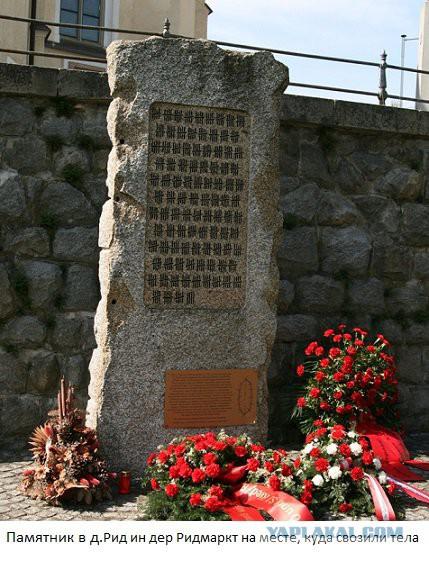
Source:
Source

Concentration third category
In August 1938 one of the most picturesque areas of Austria, near the town of Mauthausen, the party arrived prisoners from Dachau. On the ground began construction of the Austrian concentration camp, the first of the future 49, located in the Ostmark (Austria). With cynicism Nazis called their "labor camps." Mauthausen would be the worst of them.
Heydrich's decree all the concentration camps were divided into three categories according to the nature contained in them "contingent". In the first category camp directed arrested, "the correction of which is possible," in the camp of the second category - "correction which is unlikely," well, "incorrigible" subject to imprisonment in the camp of the third category. The camp is the third category was the only one - Mauthausen. Mauthausen was just terrible extermination camps (Treblinka, Sobibor, Auschwitz, Majdanek, Belzec, Chelmno).
Block №20
In the summer of 1944 in Mauthausen appeared to contain the block №20 1800 prisoners. It was a camp in the camp, separated from the total area of the fence height of 2, 5 meters, on top of which was a wire, which is under shock. On the perimeter there were three towers with machine guns.
Very soon, the 20-th block received notoriety "death block." Regularly to submit new batch of prisoners, and from there exported only corpses to the crematorium. Prisoners 20th block received 1/4 obschelagernogo diet. Spoons, plates they were not supposed to. The unit never heated. The window openings were no frames or glass. The unit was not even folk. In the winter, before the prisoners in the drive unit, the SS poured from a hose floor unit with water. People went into the water and just do not wake up.
"Suicide bombers" were terrible "privilege" - they are not driven to work. Instead, they all day doing "exercise" - non-stop running around the block, or crawling. On prisoners of the 20th block of the SS murder of human skills practiced with bare hands and improvised means. There was even a kind of "normal death" - at least 10 people a day. "Distribution list" constantly overfulfilled by 2-3 times. During the existence of the unit it was destroyed 3, 5-4 thousand. People (some sources there are about 6 thousand details.) By the end of January, block №20 remained alive about 570 people.
Prisoners block №20
With the exception of 5-6 and a few Poles, Yugoslavs (the Warsaw uprising) all prisoners "death block" were Soviet prisoners of war, officers sent here from other camps. Open defiance of the camp administration, numerous attempts to escape the Bolshevik propaganda among the prisoners ... In the 20 th block of Mauthausen prisoners were sent, even in the concentration camps poses a threat of III Reich because of their military training, strong-willed qualities and organizational abilities. All of them were taken prisoner or wounded in an unconscious state, and during his captivity were considered "incorrigible».
The documents accompanying each of them was the letter "K" means that the prisoner shall be liquidated as soon as possible. Therefore, arrived in the 20th block is not even branded as the life of a prisoner in the 20th block does not exceed a few weeks. In January 1945, the prisoners of the 20th block, knowing that the Red Army had entered the territory of Poland and Hungary, while the British and Americans crossed the German border, began to prepare an escape.
Reference data on some of the prisoners of Block 20
Colonel Nikolai Vlasov - the hero of the Soviet Union (1942), the pilot. Shot down and taken prisoner in 1943. The three escape attempts.
Lieutenant Victor Ukrainians - artillery, anti-tank riflemen. Convicted of acts of sabotage. Several attempts to escape.
Captain Ivan Bityukov - pilot of attack aircraft. In aerial combat, shooting all the ammunition, he made a battering ram. He was wounded and captured. Four attempts to escape.
Lieutenant Colonel Alexander Isupov - pilot of attack aircraft, the commander of the Air Division. Shot down, wounded and taken prisoner in 1944. In the camp where he was held, an emissary arrived Vlasov. Before POWs were herded on the parade ground collaborator predicted a quick victory in Germany and urged to join the ROA. After an inspirational speech traitor asked for the floor and took the podium Isupov. Staff of the Red Army Air Force officer, a graduate of the Air Force Academy. Zhukovsky, he began one by one to break all previous speaker abstracts and prove that the predetermined time as the Germany's defeat and the victory of the Soviet Union.
We must hurry
Ivan Bityukov arrived in Mauthausen in early January. When the camp hairdresser (prisoner-Czech) cut out his strip in the middle of the head (in the case of escape of a prisoner, she gave out), the SS left the room. Barber pressed to his ear Bityukova and hastily whispered: "You send in the 20th block. Tell her: all of them will soon be shot. Your camp asked for a plan - even looking at the bottom of the tank, which brings soup ».
Only on the third captain Mordovtsev, sweeping the bottom of the tank, he found taped a tiny ball and passed it to his comrades a few minutes before his death that something suspect SS men beat him in front of his comrades.
Escape was appointed for the night of 28 to 29 of January. But on January 27 the SS and took away the 25 most physically strong man. Among them were several heads of escape. The next day, the prisoners learned that the comrades were burnt alive in a crematorium. New date of the shoot was scheduled night of 2 to 3 February.
With stones in their hands - on guns
On the night around midnight, "suicide bombers" have started to get out of their hiding places "weapon" - stones, pieces of charcoal and fragments of a broken wash basin. The main "weapon" were two fire extinguishers. 4 were formed assault groups: three were to attack the machine gun towers, one if necessary - to fight off external attacks from the camp.
About an hour of the night, shouting "Hurrah!" Bombers of the 20th block began to jump through the window openings and rushed to the tower. Machine guns opened fire. In the face gunners hit foam spray extinguishers, flew a hail of stones. We flew even pieces of ersatz soap and wooden blocks down. One gun choked, and the tower immediately began scrambling members of the assault team. Having seized a machine gun, they opened fire on the neighboring towers. Prisoners with wooden planks shorted wire, threw her blanket and began to move through the wall. Howl siren chirping machine guns, were built in the courtyard of the SS men who are preparing to start the chase.
Broke into the 20th SS unit found him about 70 people. It was the most emaciated prisoners who simply do not have the strength to escape. All the prisoners were naked - their clothes, they gave comrades.
Outside the camp
Of the nearly 500 people of more than 400 managed to break through the outer fence and ended up outside the camp. As agreed, the fugitives were divided into several groups and ran in different directions to make it difficult to capture. The largest group fled to the forest. When it began to overtake the SS, a few dozen people broke away and ran toward the pursuers to take his last fight and delay the enemy at least for a few minutes.
One group came across a German anti-aircraft battery. Removing the time and burst into the dugout, the fugitives with bare hands strangled the gun servants, seized weapons and a truck. The band was overtaken and passed his last fight.
About a hundred escaped to freedom of prisoners were killed in the first hours. Stuck in the deep snow, in the cold (the night the thermometer showed minus 8 degrees), exhausted, many are simply not physically able to go more than 10-15 km. But more than 300 were able to escape from persecution and hid in the surrounding area.
"Hunting for birds' in the area Mühlviertel
In search of the fugitives but guard the camp were involved stationed in the vicinity of the Wehrmacht, the SS and the local field gendarmerie. Catch Fugitives brought to Mauthausen and shot at the wall of the crematorium where the bodies were burned immediately. But more often shot on the spot of capture, and the camp has brought the corpses.
In the event of German documents tracing the fugitives were called "mühlviertler hasenjagd." By tracing the local population were involved. At gatherings mayors announced that escaped - dangerous criminals who pose a threat to the population. Discovered the fugitives were ordered to kill on the spot, for each dead was granted a cash prize.
When planning an escape, the organizers counted on the support of the local population (the Austrians - not the Germans). In vain. Runaways denied food before they closed the door, they were given, they were killed.
Soldiers Volkssturm, Hitler Youth members, members of the local branch of the Nazi Party and non-Party volunteers excitedly looking around "birds" and killed them on the spot. Killing means at hand - axes, pitchforks, as cherished patrons. The bodies were brought to the village of Ried in der Ridmarkt and dumped in the yard of the local school. Here the SS men were counted, crossing out the drawn on the wall of sticks. A few days later the SS declared that "by converged».
The account has not converged!
SS lied. Survivors one person from the group to destroy the German anti-aircraft battery. Ninety-two days, risked his life to hide on his farm two fugitives Austrian peasant Langtaler sons who at that time fought in the Wehrmacht. 19 fled and were not caught. Names of 11 of them are known. 8 of them survived and returned to the Soviet Union.
Memory
According to the testimony of the survivors, a few minutes before one of the organizers of the uprising (General? Colonel?) Said: "Many of us will die today. Most of us will die. But let us swear that those who are lucky enough to stay alive and return home, tell the truth about our suffering and our struggle, that it will never happen again! "And swore.
In 1994, the Austrian director and producer Andreas Gruber made a film about the events in the area Mühlviertel («Hasenjagd: Vor lauter Feigheit gibt es kein Erbarmen»). The film became the highest grossing in Austria in 1994-1995.
In Russia, this film does not. WHY ?!

Source:

